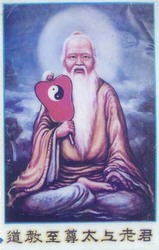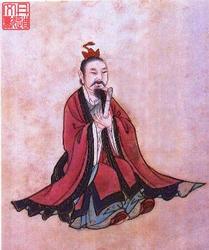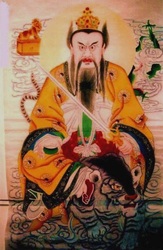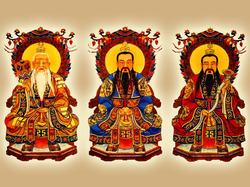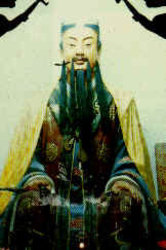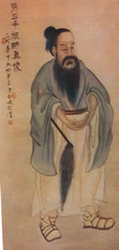What is Taoism?
OVERVIEW
Taoism/Daoism refers to a philosophy &/or religious tradition that emphasizes living in harmony with the Tao, the source and essence of everything that exists.
The term Tao originally means "way", "path" or "principle", and can be found in many Chinese philosophies and religions. In Taoism, however, it denotes an obscure metaphysical force which is ultimately ineffable: "The Tao that can be named is not the absolute Tao."
The keystone work of literature in Taoism is the Daodejing, a concise and ambiguous book containing teachings attributed to Laozi, or "the Old Teacher". Together with the writings of Zhuangzi, these texts build the philosophical foundation of Taoism. This philosophical Taoism, individualistic by nature, is not institutionalized. Institutionalized forms, however, evolved over time in the shape of a number of different schools, often integrating beliefs and practices that even pre-dated the keystone texts – as, for example, the theories of ying-yang and the 5 Phases. Taoist schools traditionally feature reverence for Laozi, immortals or ancestors, along with a variety of divination and exorcism rituals, and practices for achieving ecstasy, longevity or immortality.
Taoist propriety and ethics may vary depending on the particular school, but in general tends to emphasize Wu Wei (action through non-action), simplicity, spontaneity, harmony between the individual and the cosmos (天人相应), and the 3 Treasures: Compassion, Moderation, and Humility.
Taoism has had profound influence on Chinese culture in course of the centuries, and clerics of institutionalized Taoism (Daoshi 道士) usually take care to note distinction between their ritual tradition and the customs and practices found in Chinese Folk Religion as these distinctions sometimes appear blurred. Chinese Alchemy (especially Neidan), Chinese Astrology, Chan/Zen Buddhism, several Martial Arts, Traditional Chinese Medicine, Feng Shui and many styles of qigong have been intertwined with Taoism throughout history. Beyond China Taosim also had influence ons urrounding socieities in Asia.
After Laozi and Zhuangzi the literature of Taoism grew steadily and used to be compiled in form of a canon – the Daozang, which was at times published at the behest of the Emperor. Throughout Chinese history, Taoism was several times nominated as State Religion but after the 17th century, however, it fell much from favor.
